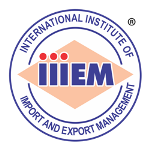
Taking a business across global borders already seems like a challenge for any company. For a smaller one, with less than 20 employees, it’s even more challenging. To help take the leap, most businesses outsource a mass of the work by recruiting vendors for multiple services.
For an SME, the market penetration costs can quickly sum up and become so unbelievable that the business rather decides to drop their plans to go global after all. This need not be the case.
- Cost: Extensive Market-Research
In most events, small businesses simply don’t have the funds. What they have can easily go into the tens of thousands of rupees, to carry out an extensive market study to arrive at a more confident judgment. As a result, many small businesses either don’t internationalize, or they put this essential aspect aside, thereby risking loss.
Cost-Saving Tip: Try real-time learning
Primary market research resources can be obtained online for free. For more thorough information, most companies find that the best way to obtain insights is to get into the field for the authentic experience. But if that appears too risky, there is a simple, momentary alternative: open a virtual office. Get a domestic phone number, business address, and consider appointing someone briefly who can communicate in the local language.
The localization perspective will help start talks with your potential customers.
Opening customer reactions can contribute crucial insights about your potential market. Take a few months’ time to study the customers in your new target market.
If you realize that this market is not a good option, for whatever cause, simply drop your virtual office contract and try a different market.
- Cost: Internationalization Advisers
Indeed, they have a profound understanding of the domestic culture and markets, maybe speak the language and have domestic connections. However, advisers are expensive. Particularly if a business’ internationalization takes months and years.
Cost-Saving Tip: Be smart about advisers
There are loads of free websites that will give you a customary understanding of the domestic culture, chief regulations and market dynamics. Also, use your governments’ free-of-cost available or economical export consulting service. You can also take advantages of the free resources posted on www.iiiem.in.
Only recruit a private adviser if you need contacts or are incapable to find answers anywhere else.
- Cost: Lawyers
It’s a general belief that one needs a lawyer to organize a business. When doing so across borders, many of them use their lawyer’s location as a business location. Just like advisers, lawyers are expensive, particularly if you’re also using their location.
Cost-Saving Tip: Use creative digital services
More and more businesses are emerging that offer legal, digital organization incorporation services that can get the job done just in a matter of the day, and for a very moderate price. If you’re in need of a correspondence address in your new market, rent virtual office services to create an official business location.
- Cost: Translators
When growing into a new country using another language, a small business is in for a huge expense surprise. Proper translations are necessary, and beneficial translators can have very high charges. Companies needing them for every email are clearly unaffordable.
Cost-Saving Tip: Hire a native
Appoint a native worker, or close-to-native, to the country you’re growing to. Even if just on a momentary basis, a native will be able to manage all your translations and provide you in-depth learning about the domestic culture.
Eventually, each company’s internationalization is different; each company must perform a cost-benefit analysis and determine where to apply a cost-saving tip and where to make the investment. Possibly you’re having a hard time understanding the foreign bureaucracy, or authentic market research turns out to be too time-exhausting. The most significant thing is to know that there are options if you’re smart enough to think beyond the conventional way of internationalizing.
